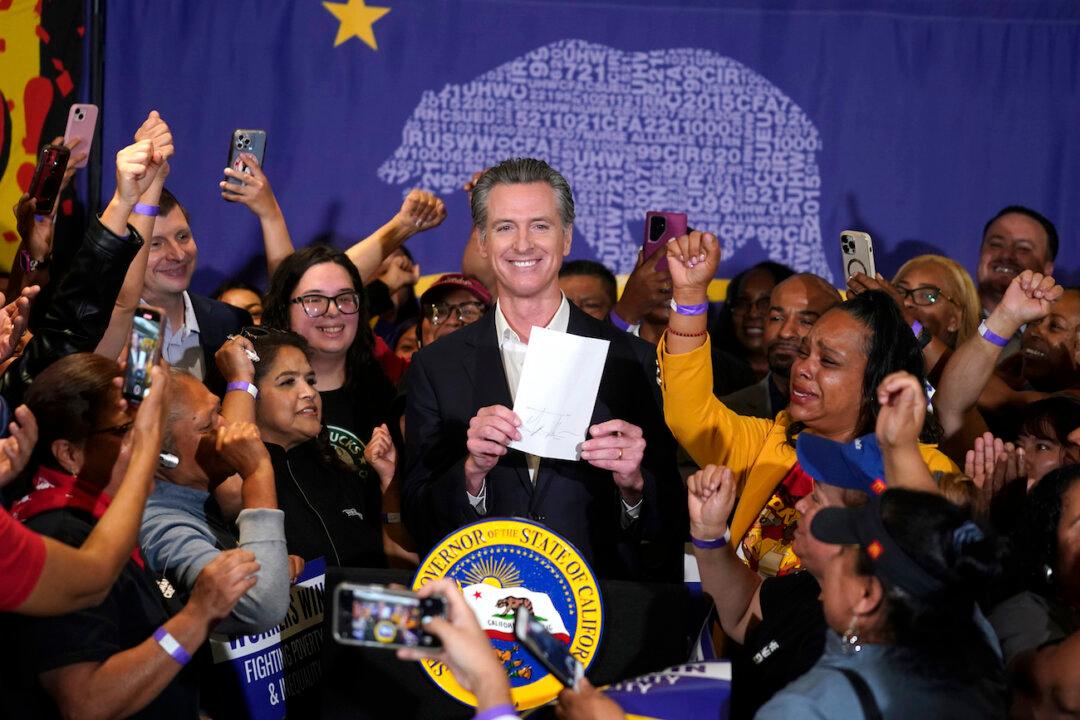Minimum wages are on the rise in California this year, with employees of larger health care systems getting paid more starting Oct. 16, after fast-food workers’ pay increased in April.
Health Care
Higher pay for certain health care providers was established with the passage of Senate Bill 525—which set a tiered schedule for wages that increase annually up to $25 per hour for some health care systems based on a complicated list of requirements determined partly by the number of employees.Employees of the largest hospital systems will earn at least $23 per hour, with annual raises of at least $1 an hour in 2025 and 2026.





